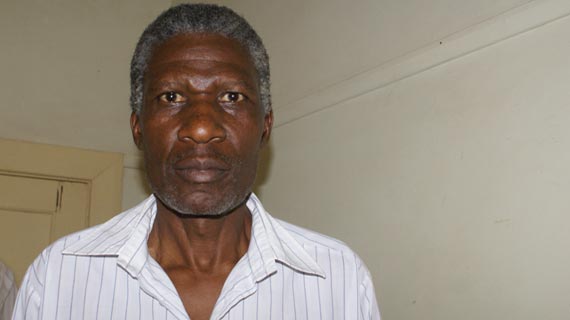
THERE are certain laws of health people have to abide by to prevent contracting most ailments that afflict our population resulting in substantial amounts of hours being lost or wasted in terms of productivity because of illness.
One of the most important health laws is water. While debate has raged on about how much water one has to drink in a day, there can be no debate about the benefits of this precious liquid.
Water is one of the most valuable helpers you have in the daily task of keeping yourself in health or in recovering health when ill.
Your body is composed of about 60% water which aids the digestion process, absorption, circulation, creation of saliva, transportation of nutrients and maintenance of the body temperature.
It is important to think of water as a nutrient your body needs on a daily basis to function at optimum levels.
Your two kidneys filter about 200 litres of fluid a day and excrete about 1,5 litres in the form of urine during this process.
More than 7,5 litres of digestive juices flow into the digestive tract in a 24-hour period and much of this water is recycled over and over again by your kidneys.
- Chamisa under fire over US$120K donation
- Mavhunga puts DeMbare into Chibuku quarterfinals
- Pension funds bet on Cabora Bassa oilfields
- Councils defy govt fire tender directive
Keep Reading
About two litres to four litres of fluids are lost a day through urination, perspiration and respiration. Drinking water helps maintain the balance of body fluids to avoid ailments such as kidney disease.
When you are low on fluids, the brain triggers the body’s thirst mechanism which you must listen to and get yourself some water.
When your body is not getting enough fluids, urine concentration, colour and odour increases because the kidneys trap extra fluid for bodily functions . . .
. . . Alcohol is not one of those liquids that help the bodily function in any manner. It does not quench one’s thirst and only serves to interfere with the brain and kidney communication causing excess excretion of fluids which can lead to dehydration.
How much water does your body really need? There are no easy answers to this question, but the truth is that your bodily water needs depend on your health and how active you are. According to the United States Institute of Medicine, an adequate intake of water for men is roughly three litres and for women 2,2 litres a day.
Water intake also increases energy and relieves fatigue. Since your brain is mostly water, drinking it helps you think, focus and concentrate better and be more alert. Your energy levels are also boosted.
When you do not drink enough water, your blood thickens and flows with greater difficulty and can end up clotting causing trouble, not only in your body tissues and organs, but also to your heart that must pump that sludged blood.
So many people eat too much salt, sugar and protein, yet each of these substances require additional water to process.
Lack of water not only affects health, it affects work as well.
Athletes in particular, find that a slight decrease in fluid will greatly affect performance. It is generally recommended that you drink eight glasses of water a day, but it is best if you do not take water with your meals but in-between meals, 30 minutes before or after.
It is also recommended that you drink water first thing upon waking up in the morning.
The average person would, by the age of 75 years, have drunk about 75 000 litres of water.
Water is the essential factor that makes all life possible. No plant, animal, or living organism can survive long without it. Water is the most essential of all minerals in your body.
The millions of cells in your body are constantly being bathed in water and this is not merely a soaking process, but rewashing activity done by your blood stream.
Water in the blood brings nutrition and oxygen to your tissues and carries off wastes.
This precious commodity is needed by mankind, not just inside the body, but outside as well.
As much as our cars and machines need water to function, so does the human body.
Your body does not need any of the soft drinks and juices people like, but water.
Your body needs water in health and in sickness.
Pure water is one of heaven’s choicest blessings. Drink it freely because it will help to supply the necessities of the system and assist nature to resist disease.
Think about it, if you cannot drive your car with one cup of water in the radiator, how can you live with one cup of water a day? What happens to your car without enough water is what happens to your body without enough water.
While the effects of not drinking enough water may not be immediate, the consequencies are chronic in the long run.
So go on and drink water.
Marandure is a Bulawayo-based naturopathic practitioner and he can be contacted on 0772 482 382











